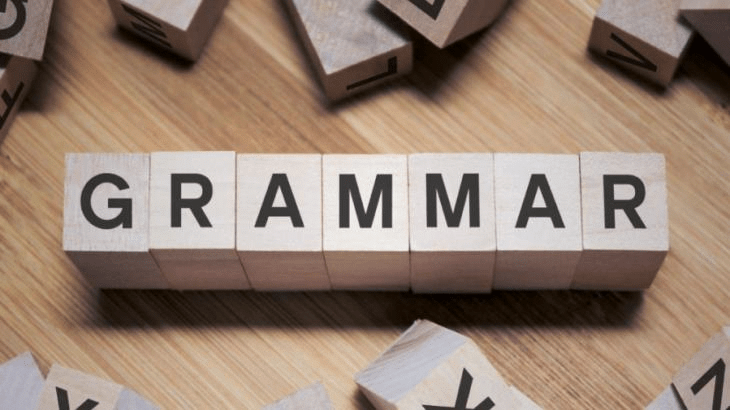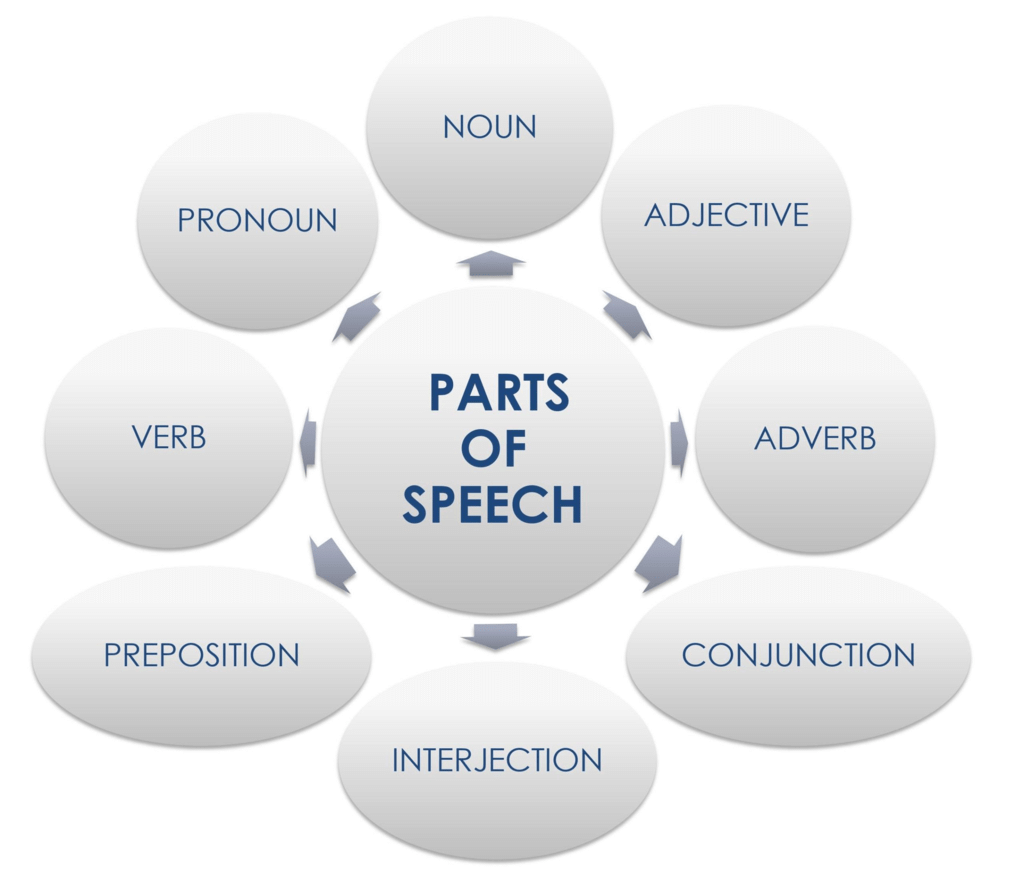Verbal Exam > Verbal Notes > English Grammar > English Grammar - One Page Summary
English Grammar - One Page Summary | English Grammar - Verbal PDF Download
Introduction
- Grammar is the set of structural rules that govern the composition of sentences, phrases, and words in any given language.

- The grammar is approached in two different ways: Descriptive and Prescriptive. The descriptive way tries to look at the grammar of any spoken language or dialect as it actually exists and it judges whether a sentence is grammatically correct or not based on the rules of the speech rather than on a set of rules.
- The perspective grammar prescribes rules for the proper usage of language.
- For MBA Admission Tests, you need to focus on prescriptive grammar.
Parts of Speech
- All words in the English language are divided into eight categories. These categories are called the Parts of Speech.

- Grammar classifies words based on eight parts of speech: verbs, nouns, pronouns, adjectives, adverbs, prepositions, conjunctions and interjections.
- Each part of speech explains not what the word is, but how the word is used. In other words, the category of parts of speech depends on the function of the word in the sentence.
1. Noun
- A noun is a word used to name a person, animal, place, thing, and abstract idea. A noun can function in a sentence as a subject, a direct object, an indirect object, a subject complement, an object complement, an appositive, an adjective or an adverb.
- Types of Nouns: Proper Nouns, Common Nouns, Concrete Nouns, Abstract Nouns, Countable, Non-Countable, Collective Nouns.
2. Verb
- The verb is perhaps the most important part of the sentence. A verb asserts something about the subject of the sentence and expresses actions, events, or states of being.
- The verb is the critical element of the predicate of a sentence. Verbs indicate what is being done in a sentence, and tell you about the activities of its subjects and about states and conditions.
3. Pronoun
- A pronoun can replace a noun or another pronoun. Pronouns have exactly the same function as nouns.
- Classification of Pronouns: Personal Pronouns, Demonstrative Pronoun, Interrogative Pronoun, Indefinite Pronoun, Relative Pronoun, Reflexive Pronoun, and Intensive Pronoun.
4. Adjective
- An adjective modifies a noun or a pronoun by describing, identifying, or quantifying words.
- An adjective usually precedes the noun or the pronoun which it modifies. Articles (the, a, an) are also considered to be adjectives.
Question for English Grammar - One Page SummaryTry yourself:Which part of speech describes a noun or a pronoun?
View Solution
5. Adverb
- An adverb can modify a verb, an adjective, another adverb, a phrase, or a clause. An adverb indicates manner, time, place, cause, or degree and answers questions such as how, when, where, and how much.
- Unlike an adjective, an adverb can be found in various places within the sentence.
6. Preposition
- A preposition links nouns, pronouns, and phrases to other words in a sentence. A preposition usually indicates the temporal, spatial or logical relationship of its object to the rest of the sentence.
- Prepositions tell you how the noun or pronoun is related to the rest of the sentence in terms of place, time, reason and so on.
Question for English Grammar - One Page SummaryTry yourself:A preposition is placed before which of these?
View Solution
7. Conjunction
- A Conjunction is a joining word that is used to link words, phrases, and clauses. Coordinating conjunctions and subordinating conjunctions are the types.
8. Interjection
- Interjections are words used to express some sudden feeling or emotion. They are not grammatically related to the other words in a sentence.
- Example: Hello!, Alas!, Hurrah!, Ah!, Oh!, Well!, etc.
- Interjections are followed by an exclamation mark. They are uncommon in formal academic writing.
9. Verbals
- Verbals are words formed from verbs but function as a different part of speech. There are three types of verbal words:
- Gerund: It is a verbal ending in -ing that functions as a noun.
- Participle: It is a verbal that functions as an adjective.
- Infinitive: It is a verbal formed by placing in front of the simple present form of a verb.
The document English Grammar - One Page Summary | English Grammar - Verbal is a part of the Verbal Course English Grammar.
All you need of Verbal at this link: Verbal
|
30 videos|33 docs|87 tests
|
FAQs on English Grammar - One Page Summary - English Grammar - Verbal
| 1. What are the eight parts of speech in English grammar? |  |
Ans. The eight parts of speech in English grammar are noun, pronoun, verb, adjective, adverb, preposition, conjunction, and interjection.
| 2. What is a noun? |  |
Ans. A noun is a word that refers to a person, place, thing, or idea.
| 3. What is a verb? |  |
Ans. A verb is a word that expresses an action, occurrence, or state of being.
| 4. What is an adjective? |  |
Ans. An adjective is a word that describes or modifies a noun or pronoun.
| 5. What is the function of a conjunction in a sentence? |  |
Ans. A conjunction is a word that connects words, phrases, or clauses in a sentence. It helps to show the relationship between the connected parts.
Related Searches






















